Hunting is a challenging and time-honored tradition that requires skill, patience, and respect for both the natural world and the animals being pursued. Among the many essential skills a hunter must possess, good marksmanship stands out as a crucial factor for a successful and ethical hunt. The ability to shoot accurately and precisely is not only important for harvesting the game efficiently but also for ensuring the safety of oneself and others in the field.
In this article, we will explore the reasons why good marksmanship is crucial for hunters, including the ethical considerations of hunting, the importance of safety and responsibility, the benefits of consistency and efficiency, the value of regular practice and training, and the personal growth that comes with developing good marksmanship skills.
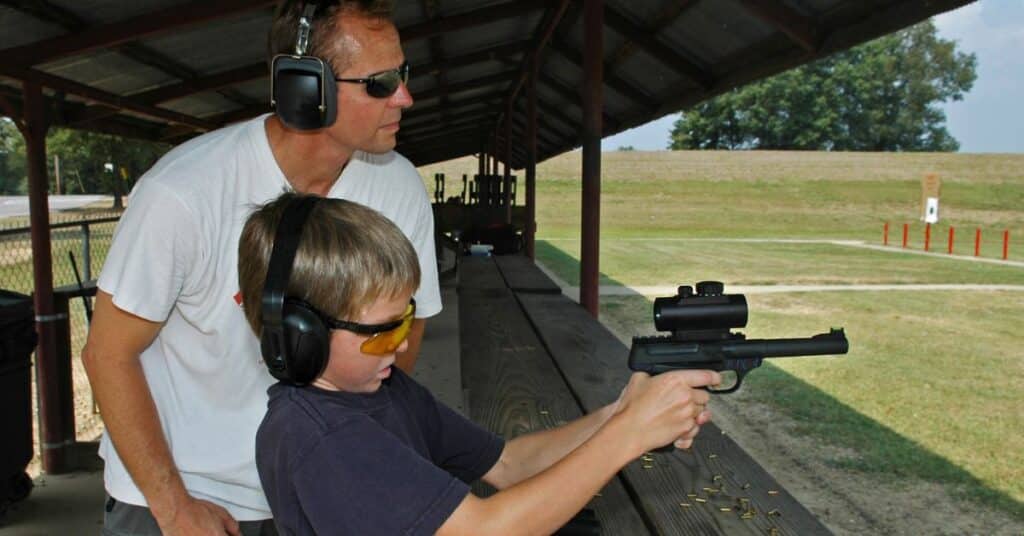
What is The Good Marksmanship
Good marksmanship is the ability to accurately and consistently hit a target with projectiles such as bullets, arrows, or darts. It requires physical and mental skill, practice, and natural talent. Marksmanship is an important skill for military personnel, hunters, competitive shooters, law enforcement officers, and others who use firearms or other projectile weapons. The four fundamentals of marksmanship are a steady position, aiming, breath control, and trigger squeeze. Other important factors for good marksmanship include proper sight adjustment, knowing which eye is dominant, and wearing prescription glasses and protective shooting glasses. Practice is essential to improve marksmanship.
The Importance of Good Marksmanship for Hunters
Accuracy and Ethical Hunting
At the core of hunting ethics lies the principle of fair chase, which dictates that hunters should strive to give game animals a fair opportunity to escape and exhibit their natural instincts. Good marksmanship plays a pivotal role in upholding this principle by enabling hunters to place accurate shots and minimize the chances of wounding an animal without a clean kill. By practicing precise marksmanship skills, hunters can increase their chances of making accurate shots that result in quick, humane kills.
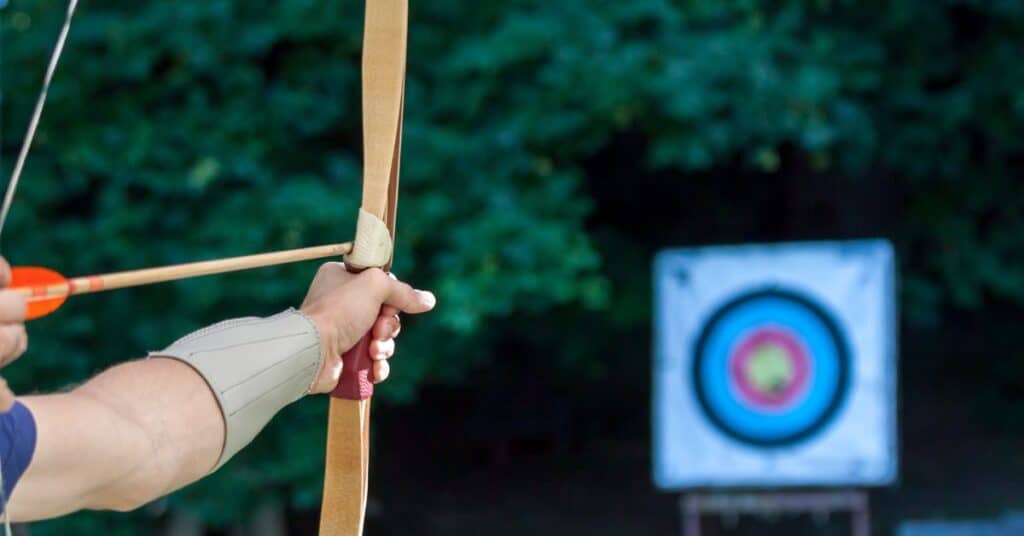
Reducing Animal Suffering By Quick and Humane Kills
In ethical hunting, the primary objective is to minimize animal suffering. Achieving this objective requires good marksmanship skills, which enable hunters to make accurate shots to vital organs, resulting in a swift and humane kill. For example, when hunting hogs, knowing where to shoot a hog for a clean and humane kill is crucial. A well-placed shot not only dispatches the animal swiftly but also minimizes the suffering that can arise from prolonged pursuit or ineffective shots. By prioritizing good marksmanship and learning about where to shoot their prey, hunters can contribute to the ethical and responsible management of wildlife populations.

Ensuring Proper Animal Control
In situations where hunting is carried out to control animal populations, such as in areas with overpopulation issues, good marksmanship becomes even more critical. Accurate shooting allows hunters to effectively manage animal populations while minimizing suffering. By targeting specific individuals with precision, hunters can help maintain the balance of ecosystems and reduce the negative impact of overpopulation on habitat and other species.
Safety and Responsible Firearm Handling
Safety is paramount in hunting, and responsible firearm handling is a fundamental aspect of ensuring a safe hunting experience. Good marksmanship is closely tied to firearm safety, as it involves proper gun handling techniques, muzzle control, and awareness of the surroundings. By practicing and mastering marksmanship skills, hunters develop a heightened sense of safety and responsibility, reducing the likelihood of accidents and incidents in the field.
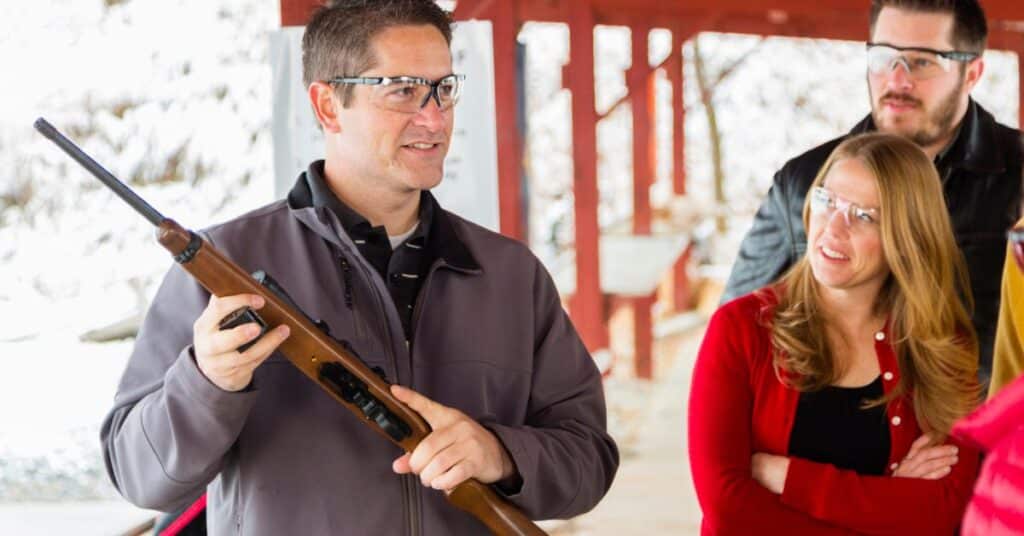
This includes understanding the fundamentals of shooting, such as proper grip, stance, and trigger control, as well as maintaining situational awareness to prevent mishaps. By emphasizing good marksmanship, hunters prioritize the safety of themselves, their hunting companions, and others who may be in the vicinity.
Precision and Consistency
Good marksmanship is key to achieving precision and consistency in shooting. By honing their marksmanship skills, hunters develop the ability to consistently place shots in the desired target area, even under varying conditions and distances. This level of precision increases the chances of a successful hunt, as it allows hunters to capitalize on opportunities presented in the field.

Effective Shot Placement
Understanding the anatomy of the intended game species is crucial for hunters to make an ethical and effective kill. For instance, when hunting deer, knowing the best places to shoot a deer is essential. These specific vital areas, such as the lungs or heart, require good marksmanship skills to target accurately. By practicing shot placement on targets similar to those animals, hunters can improve their marksmanship and increase their success rates in the field. To learn more about the best places to shoot a deer, check out our related post on the topic.
Long-Range Shooting
In some hunting scenarios, the ability to shoot accurately at long distances is crucial. Long-range shooting requires a high level of marksmanship skill, including knowledge of ballistics, wind estimation, and adjustments for bullet drop. By mastering long-range marksmanship, hunters can extend their effective shooting range and increase their chances of success in situations where they cannot get close to their quarry.
Adaptability in Various Hunting Situations
Hunting often takes place in diverse environments and under different conditions. Good marksmanship allows hunters to adapt to these varying situations, such as shooting from different positions (standing, kneeling, or prone) or in challenging terrain. The ability to make accurate shots regardless of the circumstances enhances a hunter’s versatility and overall effectiveness in the field.
Understanding Ballistics
To become proficient marksmen, hunters must have a solid understanding of ballistics. This includes knowledge of bullet trajectory and energy and how environmental factors such as wind, temperature, and altitude can affect shot placement. By comprehending the principles of ballistics, hunters can make necessary adjustments to compensate for these factors, increasing their accuracy and effectiveness in the field.
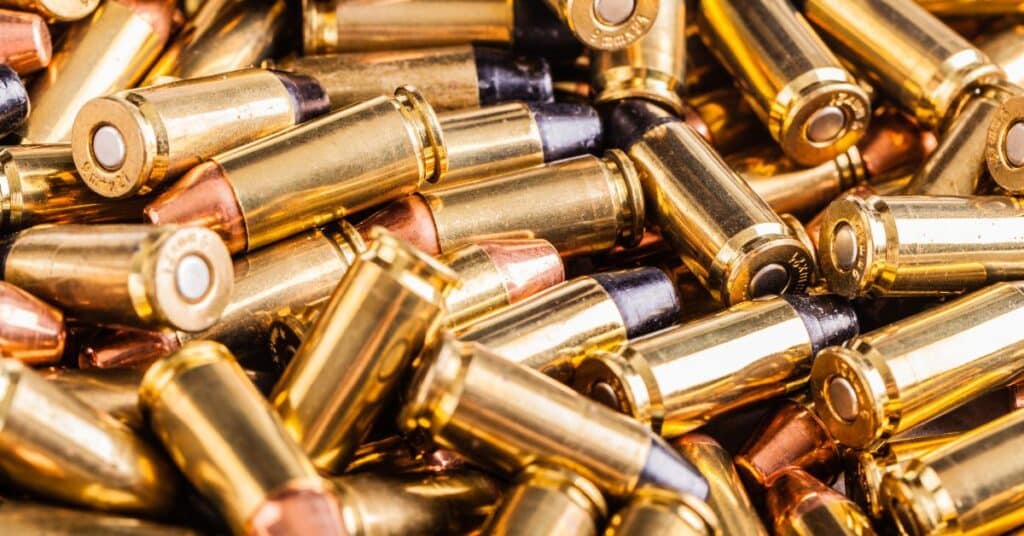
Choosing the Right Ammunition and Optics
Selecting appropriate ammunition and optics is essential for optimizing marksmanship. The choice of ammunition should be based on the intended game species, hunting conditions, and desired performance characteristics. Similarly, using quality optics, such as riflescopes or binoculars for hunting, helps hunters acquire targets accurately and enhances their ability to make precise shots. By investing in the right equipment, hunters improve their marksmanship and overall hunting experience.
Regular Practice and Training
Practice is the foundation of good marksmanship. Hunters should dedicate time to regular practice sessions to refine their shooting skills. This includes shooting at various distances, practicing different shooting positions, and simulating hunting scenarios. By incorporating the regular practice into their routine, hunters build muscle memory, improve their shooting technique, and maintain proficiency throughout the year.
Equipment Maintenance and Care
In addition to practice, hunters must ensure their equipment is well-maintained and in optimal condition. Regular cleaning and maintenance of firearms contribute to consistent performance and reliability. Properly sighting in rifles and verifying zero before hunting seasons further ensures accuracy. By taking care of their equipment, hunters can rely on their firearms to perform as expected, increasing their confidence in their marksmanship abilities.
Mental Focus and Concentration
Marksmanship in hunting extends beyond the physical aspects of shooting. Mental focus and concentration play a vital role in executing precise shots. By developing a strong mental game, hunters can maintain focus and concentration during critical moments in the field. This includes staying calm under pressure, managing distractions, and maintaining a clear mind to make accurate decisions and execute shots effectively.
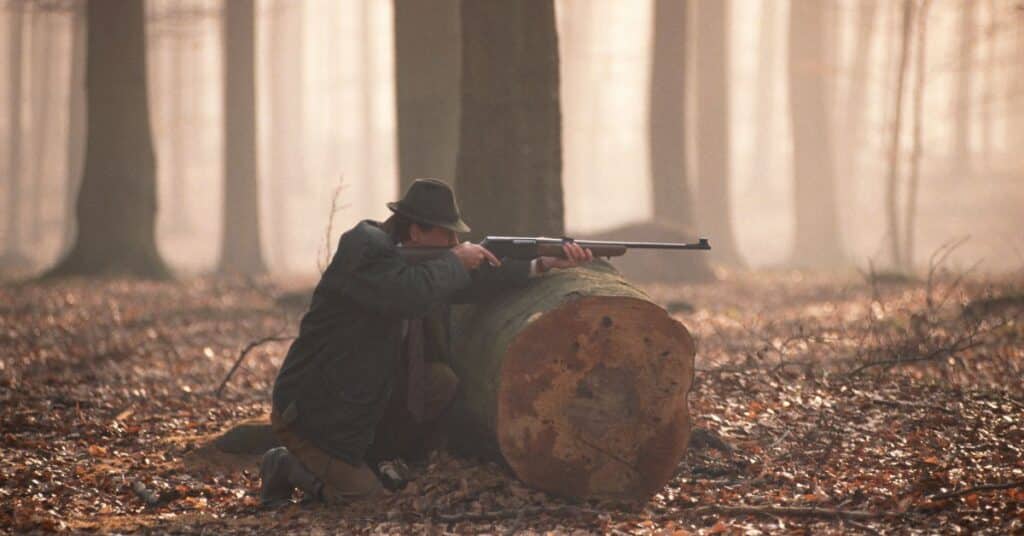
Patience and Persistence
Good marksmanship requires patience and persistence. Hunters must be willing to invest time and effort into developing their skills, understanding that mastery is a continuous journey. Patiently waiting for the right opportunity and persistently practicing marksmanship contribute to improved shooting abilities and overall hunting success.
Self-Improvement and Personal Growth
The pursuit of good marksmanship provides an opportunity for personal growth and self-improvement. As hunters strive to enhance their shooting skills, they develop discipline, perseverance, and a strong work ethic. The process of setting goals, overcoming challenges, and achieving incremental improvements not only benefits their marksmanship but also translates into other areas of life.
Respect for the Hunt and the Environment
Good marksmanship is intertwined with respect for the hunt and the environment. By prioritizing accuracy and precision, hunters aim to make clean and ethical kills, showing respect for the animals they pursue. Additionally, responsible marksmanship includes minimizing the impact on the surrounding environment, such as avoiding unnecessary shots and practicing proper bullet and cartridge disposal. Through good marksmanship practices, hunters demonstrate their commitment to ethical hunting and environmental stewardship.
Passing down marksmanship skills to future generations
Marksmanship skills have been passed down from generation to generation for centuries. Developing good marksmanship skills allows hunters to continue this tradition and pass on their knowledge to future generations.
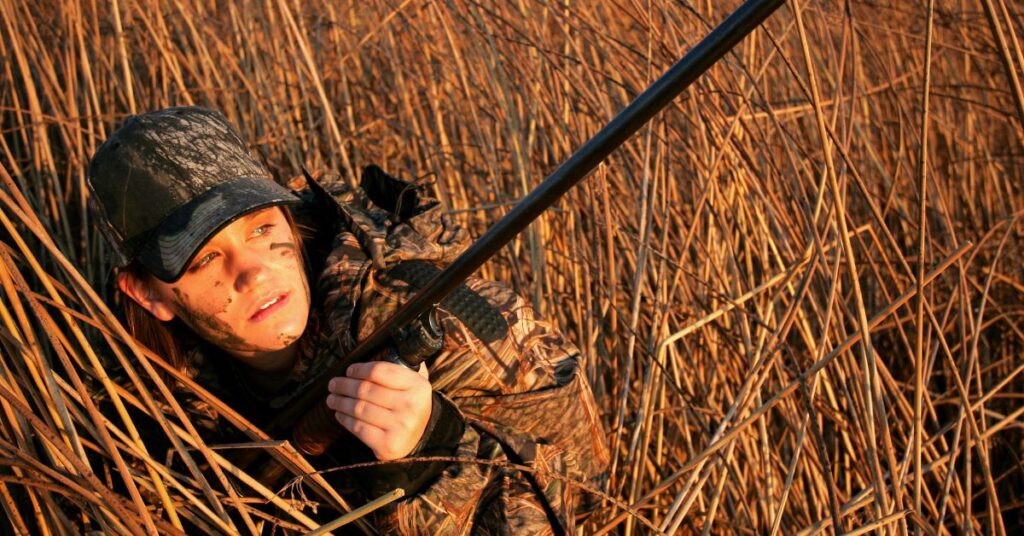
Conclusion
In conclusion, good marksmanship is of utmost importance for hunters. It upholds the principles of ethical hunting, ensures quick and humane kills, and contributes to responsible wildlife management. Additionally, it enhances hunting skills, increases success rates, and promotes safety in the field. By maintaining equipment, practicing regularly, and developing mental focus, hunters can elevate their marksmanship abilities, build confidence, and foster personal growth. Ultimately, the pursuit of good marksmanship is a lifelong journey that reflects a hunter’s commitment to excellence and respect for the hunt.
FAQs
How can I improve my marksmanship skills as a hunter?
Improving marksmanship skills involves regular practice, understanding ballistics, and seeking professional training or guidance. Practice shooting from different positions, distances and in various hunting scenarios. Additionally, familiarize yourself with the principles of ballistics and invest in quality equipment.
What are some common mistakes hunters make in marksmanship?
Common mistakes include poor trigger control, inconsistent grip, flinching or anticipating recoil, and not adjusting for environmental factors. Lack of proper sight alignment and sight pictures can also lead to inaccurate shots. Identifying these mistakes and actively working to correct them through practice and training can significantly improve marksmanship.
Is marksmanship more important than hunting knowledge and strategy?
Marksmanship and hunting knowledge are interconnected and equally important. While marksmanship ensures accurate shots, hunting knowledge and strategy provide the necessary understanding of animal behavior, habitat, and hunting techniques. Both aspects are crucial for a successful and ethical hunt.
Can good marksmanship make up for lack of hunting experience?
Good marksmanship can certainly enhance a hunter’s effectiveness in the field. However, hunting experience is invaluable and complements marksmanship skills. Experience helps hunters develop instincts, improve situational awareness, and make sound decisions beyond marksmanship alone.
Are there any recommended marksmanship training programs for hunters?
Several organizations, such as the National Rifle Association (NRA) and various shooting schools, offer marksmanship training programs tailored for hunters. These programs provide comprehensive marksmanship fundamentals, ballistics, shooting techniques, and fieldcraft instruction. Researching and selecting a reputable training program can greatly benefit hunters looking to improve their marksmanship skills.

About The Author:
Lake Streeter, A Gun enthusiast, and loves to hunt in the middle of the wood. Always check the latest hunting gears out in the market and try to share his honest opinion with the audience in Hunting Nook.
